Bloodshed, sorrow and tears is new normal in present day Nigeria. Highly demoralized, uninspired service chiefs not able to deliver on their mandate despite billion annually appropriated for securing lives and property of the citizens. Korede Abdullah analyses that Fire brigade approach, lacking operational templates and executive impunity have contributed to the unending insecurity across the length and breadth of Nigeria, with grave consequences-escalating killings, abduction for heavy ransom.


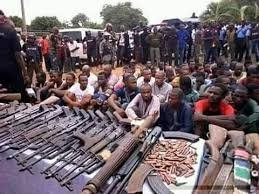
Relentless Wave of Violence
In recent times, Nigeria has been plagued by a relentless wave of violence, with incessant killings leaving a trail of bloodshed, tears and despair across the country.
Killings across Nigeria
From the streets of major cities to rural villages, no state has been spared the brutality of assassination, robbery, abduction, and other forms of violence, resulting in the loss of countless lives and leaving families shattered.
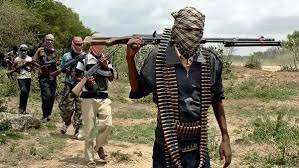
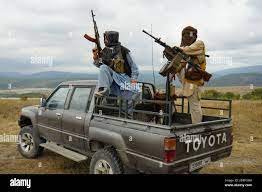
Armed assailants invade homes, abduct people, and demand ransom, leaving families to struggle with sourcing funds for their release amidst the country’s economic challenges.
The country’s fragile security landscape has been stretched to the breaking point, with the frequency and ferocity of attacks escalating by the day, and the government’s efforts to stem the tide of violence seemingly unable to keep pace with the sheer scale of the carnage.
As the body count continues to rise, Nigerians are left to wonder if the country is sliding into an abyss of chaos and anarchy, with no end in sight to the senseless slaughter.
Northern Nigeria worst hit
The northern region of Nigeria has been worst hit and plagued by a relentless wave of killings perpetrated by bandits, terrorists and other criminals, leaving a trail of death and destruction in their wake.
These armed groups, including the armed Militia and Islamist extremists like Boko Haram and ISWAP, have targeted rural communities, killing thousands of civilians, abducting many more, and displacing millions from their homes.
The attacks are often characterized by extreme brutality, with victims being shot, hacked to death, or burned alive, and their homes and livelihoods destroyed.
The killings have been particularly devastating in states like Kaduna, Katsina, Sokoto Zamfara, and Niger where the security forces have struggled to contain the violence, and the federal government’s response has been criticized as inadequate, leaving the affected communities feeling vulnerable and abandoned.

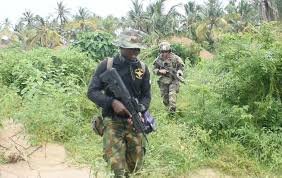

Fresh attacks rocked Mangu, Plateau State on Tuesday, January 23, resulting in the deaths of 25 persons. This devastating incident comes barely a month after a series of attacks on Christmas Eve claimed the lives of at least 195 people and displaced over 10,000 others across Bokkos, Barkin Ladi, and Mangu Local Government Areas.
The violence didn’t stop there. On the same day, January 23, reports emerged of further attacks in Benue State, where 30 people lost their lives.
Additionally, gunmen launched an assault on Yandaka village in Batsari Local Government, Katsina State, killing three individuals and abducting 32 others.
These tragic events highlight the ongoing security challenges and senseless violence plaguing various regions in Nigeria.
In June this year, Dr Kamar Abdulkadir, a Lecturer at the Department of Physical Health Education at the University of Maiduguri, was murdered in his office
The victim was found dead with several injuries inflicted on his body by his killers. The killing of the lecturer is just one out of hundreds such incidents that occur in that part Nigeria on a regular basis.
Killing of Kwara student
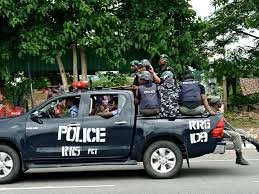
On August 12, a female student at the state College of Health, Mojisola Awesu, was found dead in a refuse dump in the Aleniboro area of Ilorin, the state capital.
Awesu was allegedly contracted by her friend to act as a girlfriend for another private varsity student at a party for the sum of N15,000.
The Kwara State command Police Public Relations Officer, Toun Ejire-Adeyemi revealed that the victim’s body was found in a refuse dump and was reported on August by one of the residents of the area.
The police operatives who visited the scene later recovered the body, which was identified as Awesu before depositing it at a morgue.
Murder in Lekki
Just last week, the Ajiran community in Agungi, Lekki, Lagos State, was thrown into mourning after the brutal murder of Demola Akinloye, the eldest son of the Ojomu of Ajiran land, Tijani Akinloye.
The incident occurred on Monday August 26, near Ebano Supermarket along Chevron Drive, sending shockwaves through the community.
Ritual killings in southern Nigeria

In the southern parts of Nigeria, particularly Ogun State, a sinister trend of ritual killings has emerged, leaving a trail of horror and death in its wake.
Innocent victims, often lured with promises of employment relationship, or other deceitful means, are brutally murdered by ritualists who believe that certain body parts possess mystical powers to attract wealth and prosperity.
These heinous crimes are often carried out in secret shrines and forests, where the victims’ bodies are mutilated and harvested for their supposed valuable organs.
The perpetrators, driven by greed and a twisted belief system, have left families and communities shattered, with many still searching for missing loved ones.
The Ogun State Police Command has arrested several suspects and discovered ritual shrines, but the menace persists, sparking widespread outrage and calls for urgent action to combat this evil practice.
Killings in Ekiti
In a shocking spree of violence, Ekiti State which used to be peaceful has had its own fair share. Three individuals were gunned down in broad daylight in Ado Ekiti, the State capital in June.
The first victim was a Point of Sale (POS) agent, popularly known as Alfa, who was shot by a gunman riding an Okada (motorcycle) in the Teaching Hospital area.
This incident was quickly followed by another shooting, which claimed the life of Samuel Omoyajowo, a middle-aged man, near the Governor’s office at Okesa Roundabout.
The violence continued unabated as a wheelbarrow pusher became the third victim, shot dead inside Bisi Market.
The quick succession of these killings sent shockwaves through the community, leaving residents in a state of panic and fear. Eyewitnesses described the scenes as chaotic, with people running for cover as the gunmen carried out their deadly attacks.
The motive behind these killings is yet to be determined, but the brazen nature of the attacks has raised concerns about the safety and security of citizens in Ado Ekiti.
The security agents have taken swift action to apprehend some of the perpetrators while many of them are still at large.
As the community mourns the loss of these innocent lives, many are left wondering if the violence will escalate further.
Kidnapping and murder of EKSU DVC
Professor Olorunfemi Olaofe, a 79-year-old renowned Chemistry scholar from Ekiti State University, was abducted from his residence in Ado-Ekiti on July 9, 2024. The kidnappers also took his security guard, leaving his family and the academic community in a state of distress.
Professor Olaofe was a respected figure in the academic circle, having served as the Deputy Vice-Chancellor of Ekiti State University. His abduction sparked widespread concern, with many calling for his safe release.
Tragically, 21 days after his abduction, Professor Olaofe’s body was discovered along Afe Babalola University road in Ado-Ekiti, where it had been dumped by his kidnappers.
The circumstances surrounding his death are still unclear, but sources revealed that the kidnappers had initially demanded a N50 million ransom before ceasing communication.
The brutal murder of the Professor has sent shockwaves through the community, with many mourning the loss of the distinguished academic. The incident has also raised concerns about the safety and security of citizens in Ekiti State, particularly the vulnerable and elderly.
Killings cause of brain drain
About three days ago (August 30), the Nigerian Medical Association (NMA), attributed the mass migration of medical doctors from Nigeria to the rising insecurity in the country. Dr. Abubakar Hassan, Chairman of NMA in Kogi State, expressed concern about the trend while addressing journalists in Lokoja on Friday.
He talked the nationwide strike by the Nigerian Association of Resident Doctors, emphasizing the vulnerability of medical personnel to criminal attacks despite their selfless service to humanity.
Dr. Hassan lamented that medical professionals have become prime targets for kidnappers and other criminal elements, leading to a crippling effect on healthcare services nationwide, including Kogi State. He emphasized that numerous cases of doctors being held captive by their abductors remain unreported, underscoring the severity of the situation.
The NMA chairman’s comments came amid a backdrop of escalating killings and kidnappings in Nigeria, with medical personnel increasingly becoming targets.
This trend has not only resulted in a brain drain but also compromised the ability of the healthcare system to provide adequate services to the population.
55,910 Killed, 21,000 Abducted In Nigeria in Four Years
It has been reported that a staggering 55,910 deaths occurred in Nigeria over a four-year period, from October 2019 to September 2023, according to a comprehensive study conducted by researchers from the Observatory of Religious Freedom in Africa (ORFA).
ORFA, which operates under the Foundation Platform for Social Transformation, is dedicated to monitoring religious freedoms and documenting human rights violations across Nigeria.
The report highlights the devastating impact of escalating violence, particularly in the North Central Zone and Southern Kaduna, where mass killings, abductions, and family torture have become commonplace.
Peace advocates, such as Rev. Dr. Gideon Para-Mallam, recognize this violence as part of a broader strategy to destabilize and terrorize vulnerable groups.
The research identifies the Fulani Ethnic Militia (FEM) as a primary perpetrator of violence in Nigeria, contributing to the alarming trend of mass violence.
According to Frans Vierhout, a Data Scientist at ORFA, the report’s findings are concerning, as security agencies seem to be focusing on remote targets rather than addressing the immediate needs of local communities.
The ORFA report revealed that the Fulani Ethnic Militia (FEM) is responsible for 42% of civilian killings in Nigeria, with a significant concentration of violent activities in the North Central Zone and Southern Kaduna areas.
The report, which analyzed data from October 2019 to September 2023, found that FEM’s attacks have resulted in over 55,000 killings and 21,000 abductions across the country. In the North Central zone alone, 3,007 incidents of extreme violence occurred, including 2,010 killings, 700 abductions, and 297 combined incidents.
The report also highlighted a troubling trend in abductions, with incidents rising steadily over the four-year period. Christians are 1.4 times more likely to be abducted than Muslims, with an estimated 5.1 Christians abducted for every Muslim within local populations.
Furthermore, the data showed that land-based community attacks form the largest category of civilian killings (81%), with FEM invading small Christian farming settlements to kill, rape, abduct, and burn homes. The report noted that 2.7 Christians were killed for every Muslim in the reporting period.
The International Displacement Monitoring Centre (IDMC) reported that 3.3 million Nigerians were forcibly displaced from their homes by the end of 2023, surviving in makeshift camps.
Humongous budgetary allocations to security
Despite a significant increase in defence budgetary allocation over the past few years, the response of security agencies to the growing insecurity in Nigeria has been underwhelming.
In 2021, the defence budget was N966.4 billion, which rose to N1.2 trillion in 2022 and further increased to N1.383 trillion in 2023.
For 2024 under President Bola Tinubu, the defence budget has been allocated N1.647 trillion, representing about 5.7% of the entire budget for the year.
Similarly, the budget for the Police has also seen a steady increase, from N455 billion in 2021 to N559 billion in 2022, and then to N838 billion in 2023.
For 2024, the Police budget stands at N969.6 billion. Despite these significant allocations, the security situation in the country remains a major concern, with many Nigerians still facing threats to their lives and livelihoods.
The inability of security agencies to effectively address the growing insecurity, despite increased funding, raises questions about the effectiveness of their strategies and the utilization of resources.
It also highlights the need for a more comprehensive approach to addressing the security challenges facing the country, beyond just increasing budgetary allocations.
The killings as a major concern
The Africa Health Report (AHR) findings underscore the urgent need for effective action to address the escalating violence and protect vulnerable populations in Nigeria.
According to a security analyst, Mr Ope Oyerinde, who spoke to our correspondent, he said the grim situation has become a major concern and called for an urgent action from the government to put an end to the carnage.
“The report’s revelations underscore the urgent need for effective action to address the escalating violence and protect vulnerable populations in Nigeria.
Oyerinde said, “The incessant killings in Nigeria are a major concern for the government, citizens, and the international community.
“The government needs to find solutions because these killings are not only claiming lives but also causing displacement, economic hardship, and psychological trauma to the affected communities.”
Oyerinde added that the root causes are of insecurity in the country complex and multifaceted. He gave some of the main factors to include ethnic and religious tensions, economic inequalities, land disputes, banditry, and terrorism.
He advised the government to address these underlying issues through dialogue, policy reforms, and effective security measures.
“The government should increase security presence in affected areas, improve intelligence gathering, and support community-led peace initiatives.
“Additionally, they should address the socio-economic factors driving these conflicts, such as poverty, unemployment, and inequality.”, Oyerinde said.
On how the government could ensure the safety of citizens, especially in rural areas, has this to say, “Government should establish effective community policing, engage with local leaders, and provide support for rural development projects. This will help build trust and improve security in rural areas.
Challenges for President Tinubu
Nigerians eagerly await the Tinubu-led administration’s decisive action to tackle the long-standing issue of insecurity, which has plagued the country for far too long.
The government has been urged to move beyond mere condemnations and reassurances, and instead, delve into the root causes of the various dimensions of insecurity to devise a lasting solution.
To effectively address insecurity, the government has been advised to acknowledge and understand its complexities, including the social, economic, and political factors that drive it.
Security experts say it requires a comprehensive approach that goes beyond military might, to address the underlying issues that fuel violence and criminality.
The Nigerian Government has a constitutional responsibility, as enshrined in Section 14 (2)(b) of the 1999 Nigerian Constitution, to prioritize the security and welfare of its citizens.
Just as Oyerinde has said, other security analysts stressed it that it’s imperative that the government lives up to this responsibility, and takes concrete actions to ensure the safety and well-being of all Nigerians.
The people’s expectations are high, and the government must rise to the challenge to deliver a secure and prosperous Nigeria.



